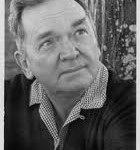 A religious leader came to Jesus with a question. “If loving God and loving my neighbor is the totality of religious and spiritual requirement, then tell me Jesus, who is my neighbor?” Jesus answered with a parable. Jesus’ response is his most well known story: The Good Samaritan. It turns up everywhere in our culture, even in places where people do not know what a Samaritan is or that it was Jesus who first told the story. With such familiarity, we typically think of the Good Samaritan as a parable about being a good neighbor. That is not Jesus’ point at all. Jesus does not even attempt to define the word “neighbor,” though that is what the religious questioner wanted. Jesus takes another tact altogether. He defines instead what it means to “love your neighbor.” It is a love that involves itself in unexpected, revolutionary, boundary-breaking ways. Of course, the only way to explain such a love is with a story.
A religious leader came to Jesus with a question. “If loving God and loving my neighbor is the totality of religious and spiritual requirement, then tell me Jesus, who is my neighbor?” Jesus answered with a parable. Jesus’ response is his most well known story: The Good Samaritan. It turns up everywhere in our culture, even in places where people do not know what a Samaritan is or that it was Jesus who first told the story. With such familiarity, we typically think of the Good Samaritan as a parable about being a good neighbor. That is not Jesus’ point at all. Jesus does not even attempt to define the word “neighbor,” though that is what the religious questioner wanted. Jesus takes another tact altogether. He defines instead what it means to “love your neighbor.” It is a love that involves itself in unexpected, revolutionary, boundary-breaking ways. Of course, the only way to explain such a love is with a story.
Paul Rusesabagina is the former hotel manager who inspired the movie Hotel Rwanda. Beginning in April 1994, over the course of a hundred days, an estimated one million Rwandans were killed after extremists in the majority Hutu population turned on the Tutsi minority. Fifteen percent of the population was annihilated. For perspective, that would be the percentage equivalent of a genocide wiping out forty-six million Americans, the total combined population of the greater Southeastern United States:Alabama,Georgia,Florida,Mississippi,South Carolina and Tennessee– every human being living in those states, gone in three months. Hotel Rwanda focuses on the seventy-six days in which Mr. Rusesabagina transformed the luxury hotel over which he was responsible, into a refuge for the terrified.
On the first day of violence, twenty-six people came to Paul’s home for shelter. They knew he was a person of influence with high connections and that he could help them. That is why they came. But they also knew he was a person of compassion. Paul had grown up in the Seventh Day Adventist Church and studied theology before becoming a hotel manager. His father had also taught him to always do what is right, no matter the consequences. His father would say to him, “If two brothers are fighting, and you are called upon to separate them, you shouldn’t look at those guys, one on your right hand side, or on the left hand side…You only have to look up and see the truth, and only the truth.”
That truth became a shining light of compassion, when at the end of those three months of killings Paul Rusesabagina had sheltered and saved 1,268 people in his hotel. They all survived on the ingenuity and creativity of an ordinary hospitality worker. Somehow Paul kept corn and beans in the kitchen, rationed the water in the pool for drinking when militia cut the pipes, who took all the room numbers off the doors and burned the registration records, so the roving bands of machete-welding killers would not know the identities of those under his protection. At one point, Paul and his family were given the opportunity to leave Rwanda. He packed his bags to depart. It was then the residents of his hotel came to him and begged him to stay.
“Paul,” they said, “we know you are going to be leaving this place tomorrow. But please, if you are really leaving, tell us, because we will go to the roof of the hotel and jump. A better death would be to jump and die immediately than to be tortured.” Paul said, “By that afternoon I had made the toughest decision of my life. I said to myself, ‘Listen, Paul, if you leave, and those people are killed, you will never be a free man. You will be a prisoner of your own conscience.’ I then decided to remain behind.” He further explained his actions this way: “If I am going to die, then I will die helping my neighbor.”

